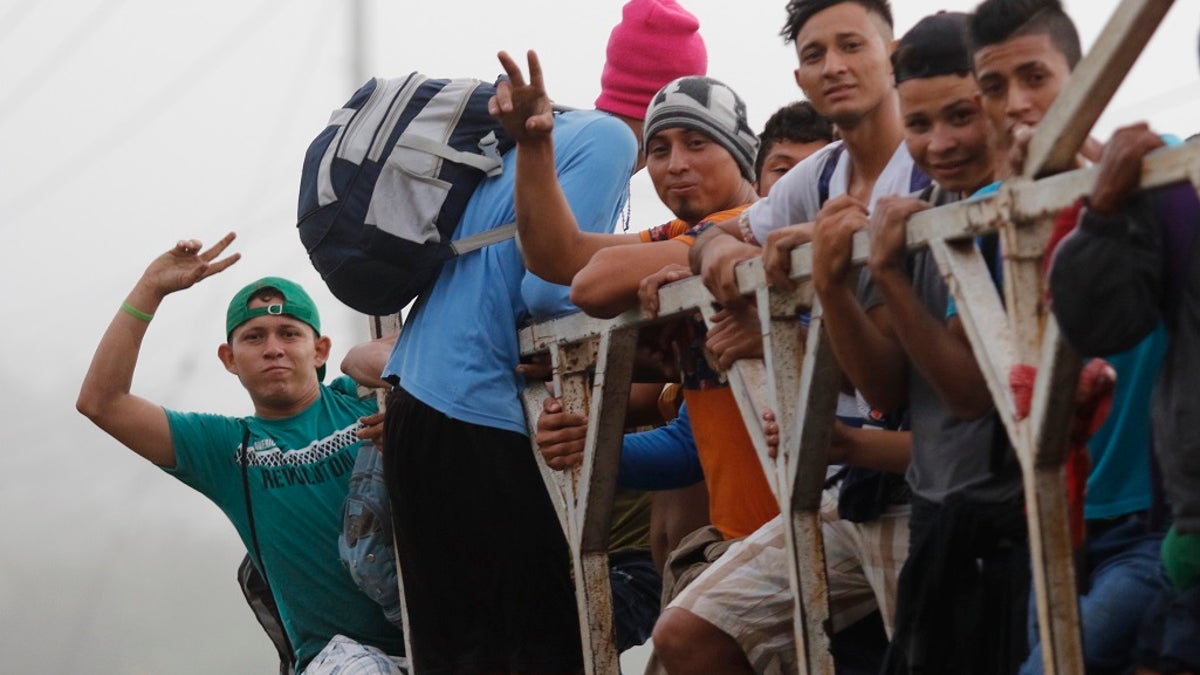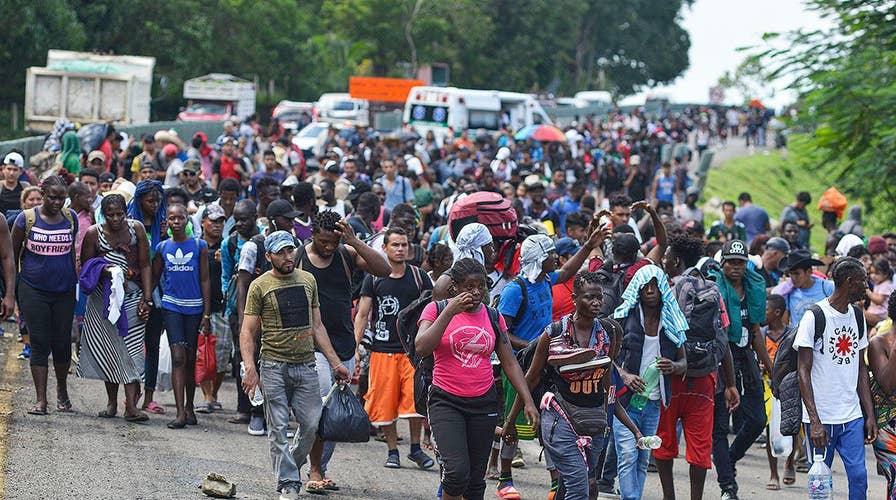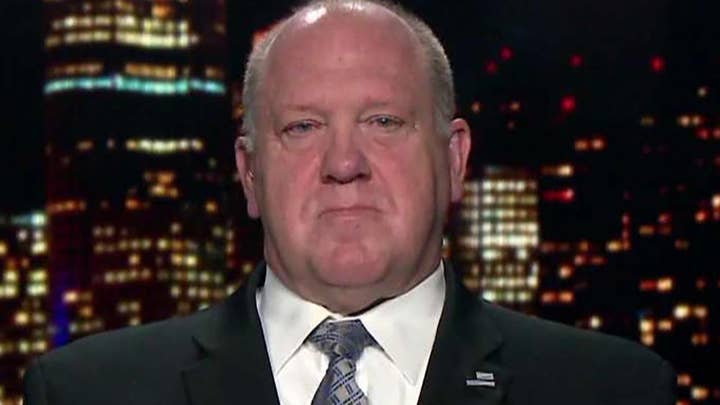Mark Morgan: Mexico is doing exactly what they promised to stop migrant caravans
Acting Commissioner of Customs and Border Protection Mark Morgan has an update on the Trump administration's efforts to reduce border apprehensions.
Hundreds of people, mostly Hondurans, began walking and hitching rides from San Pedro Sula, Honduras, on Wednesday in hopes of starting another migrant caravan similar to one that traversed through Mexico and inundated American border agents in 2018.
Their attempt to form another caravan comes as Mexico has begun stepping up efforts to block migrants from arriving at the southern border amid pressure from the Trump administration. Many migrants are seeking asylum in the United States, citing endemic poverty and increases in crime and gang activity in their Central American countries.
“We aren’t living here, we’re just surviving,” said Elmer Garcia, 26, a migrant from the town of Comayagua, Honduras. “So it doesn’t make much difference if you die there, or die here.”
CALIFORNIA COUPLE MISSING AFTER TRAVELING TO MEXICO TO COLLECT RENT CHECKS FROM TENANTS: REPORTS

Migrants ride on top of a truck moving along the highway, in hopes of reaching the distant United States, from San Pedro Sula, Honduras, early Wednesday. Hundreds of Honduran migrants started walking and hitching rides Wednesday from the city of San Pedro Sula, in a bid to form the kind of migrant caravan that reached the U.S. border in 2018. (AP Photo/Delmer Martinez)
Wednesday's journey could face obstacles from Mexican authorities, which broke up a number of attempts to form caravans last year.
“The truth is, it is going to be impossible for them to reach the United States,” said human rights activist Itsmania Platero. “The Mexican police have a large contingent and they are going to catch all the migrants without documents and they will be detained and returned to their home countries.”
In an attempt to decrease the flow of migrants, the U.S. has entered into bilateral agreements with Guatemala, Honduras and El Salvador to deny people the opportunity to apply for asylum in the U.S. in an effort to enlist other countries to help deal with the ongoing crisis.
Migrants are instead sent back to Central America with an opportunity to ask for protection there.
Gerson Noe Monterroso, 34, said he's been unemployed for five years and sees the journey to the U.S. as an opportunity. He left his home in Choloma, just north of San Pedro Sula, with dreams of finding a job to send money back to his family.
EL SALVADOR PRESIDENT SAYS HIS COUNTRY MUST FIX PROBLEMS THAT CONTRIBUTE TO US IMMIGRATION CRISIS
He was making the trip Wednesday with his toddler in his arms. His other children are with their grandparents back home, he said.
Israel Connor, a Nicaraguan who has been living in Honduras since fleeing political and social upheaval, left Wednesday with his wife and their three children, ages 3 to 5.
“We are going to struggle, but if God is with us, nobody can stop us,” said Connor. “We know we are going to get through Guatemala, and God will soften the hearts of the Mexican authorities.”
After arriving at the U.S.-Mexico border, migrants seeking asylum are given a series of options: One is to be sent back to Guatemala as part of a "safe third country" agreement with the U.S. or their home country. Another is entering into the Migrant Protection Protocols (MPP) -- also known as “Remain-in-Mexico" -- where they can wait out their cases in Mexico.
The program ended the practice of "catch-and-release" by where immigrants were released into the U.S. to await their hearings.
CLICK HERE TO GET THE FOX NEWS APP
Critics and human rights advocates say sending migrants to countries marred by violence puts them in danger. The Trump administration recently started returning Mexican migrants deep into the country, as far down as Guadalajara.
The plan marks a change from past protocols, which called for releasing migrants at the border. Homeland Security officials expect to return 250 Mexican migrants each week.
Fox News' Adam Shaw and The Associated Press contributed to this report.









































